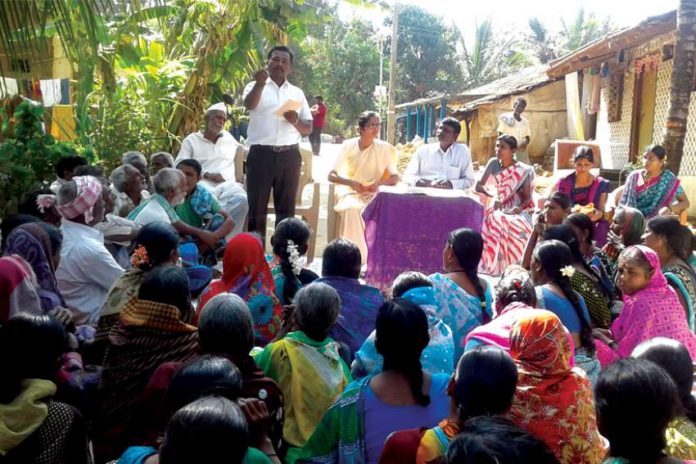This article is written by Prashant Tiwari.
Table of Contents
Introduction
The concept of blasphemy embarked and originated from Greece in AD 325. Its evolution as a wrong spurred as the concept of monotheism was developed. In around 12th or 13th century, Jews gave the somewhat definitive structure to the concept of blasphemy. It was established as law in Europe in the 13th century the landmark case was of John Taylor in 1675 that embodied the definition of blasphemy in the context of a state. Justice defined blasphemy as ‘treason against the state and the law itself’. Blasphemy, in recent times, is defined as ‘the action or offence of speaking sacrilegiously about God or sacred things.’
Currently, around 25% of the countries in the world have defined punishments of criminal nature of the offence of blasphemy is committed. Among the 71 countries, only two i.e. Iran and Pakistan have incorporated the capital punishment of death for the offence. Though India and Pakistan followed a similar criminal justice system as Lord Macaulay’s criminal code was prevalent but Pakistan made amendments in the years 1980 to 1986 and included blasphemy as a penal offence.
In India, blasphemy is punishable under provisions of Indian penal code of 1860. India is a secular state, and accordingly not particular religion is protected by the blasphemy laws, but all the religions and even different denominations thereof, whereas in countries like Pakistan and Iran, only one religion (Islam, in this case) is protected by the enacted blasphemy laws.
In 1952 the US Supreme Court held that blasphemy is ‘unconstitutional’. In 1995 it was abolished in Australia and in many recent times, it was abolished in England in 2008. Countries, putting the right to speech and freedom at the highest pedestal for the liberal nations, believe that blasphemy laws in place may impede the apt implementation of the same and thus vehemently oppose conglomeration the concept of religion and the entity of state rigidly, for example, united states of America. And then there are countries like China, the communist nations which don’t believe in the theory of religion at all.
International discourses
The idea of blasphemy was put forward by Pakistan in front of UN under the shadow of OIC in 1999 as ‘Defamation of religion’. Amidst many debates and deliberations, the stance of the UN has changed, between 1999 and 2009, from protecting the religion to protecting the rights of individuals to practice their religion. This thought is materialised in many statements of the UN. Also, UN condemns nations in which blasphemy laws are in place as it declares countries with blasphemy laws in any form that have signed the ICCPR are in breach of their obligations under the ICCPR. The UN also admits the argument that blasphemy laws are used as an instrument to abridge the rights of the individuals to express their views and impedes the freedom of expression tantamount to be draconian nature.
Blasphemy laws in India
Right to the religion of individuals to practice, profess and propagate not only religion but multifarious denominations thereof is embodied into the constitution of India. Same provisions also put reasonable restrictions on both, the state and the individual, as the exercise of the same rights should not impinge public order, morality and national security of the country. If the state abridges an Indian of his right to religion than he may move to the apex court under article 32, but what if an individual violates aforesaid rights? To protect the rights of one individual against the other chapter XV was added to Indian penal code in 1927 as ‘offences relating to religion’. These are the very blasphemy laws of India. This chapter covers the following sections:
- Section 295: If any person intentionally damages, destroys or defiles any religious object deemed to be sacred by followers of any religion in India, including objects other than idols and books is punishable under this section. He shall be punished with imprisonment up to two years or fine, or both.
- Section 295A: if a person maliciously by words spoken or written or signs or by visible representation insults or attempts to insult religious sentiments of any class of citizens of India then he may be punished under this section. A person can be imprisoned for 3 years or fined, or both if charged under Section 295A of the Indian Penal Code.
- Section 296: if a person intentionally causes disturbance to any lawful religious assembly and ceremonies thereof he shall be punishable under this section and he can be imprisoned for one year or fined or both.
- Section 297: if a person intentionally trespasses any burial place knowing that this act of his may hurt the religious sentiments of any class of citizens is punishable under this section. This provision is said to protect the religious rights of even dead persons. Punishment under this section is imprisonment up to one year or fine or both.
- Section 298: This is a peculiar provision in this chapter as all the offences under this chapter of Indian penal code are cognizable, bailable, non- compoundable, but offence under this section is compoundable, non-cognizable and non-bailable. Any person, who intentionally utters any words, makes any sound or signs, visible or audible, as the case may be, to the aggrieved, as to hurt the religious feelings of the person, maybe punished under this section. Now it may seem reasonable why it is a compoundable and non-cognizable offence. It is compoundable only by the person whose religious sentiments have been hurt. An offender can be imprisoned for one year or fine or both under this section.
Section 154 of the Indian Penal Code prohibits the incitement of hatred in name of religion but this section does not protect any religion but rather it protects the right of an individual to practice his or her religion.
In northern India, in the state of Punjab, there are some state amendments to this part of the penal code. Section 295AA was inserted in the code and it incorporated the punishment of life imprisonment for the offence of blasphemy in Punjab. This was criticized because only selected religious objects were placed under the section and not all. It was inserted in the year 2018 as religious tensions were surging continuously at this time in Punjab.
Imperious facets of blasphemy laws
Case of Asia Bibi is the first and case of blasphemy in Pakistan. Analysing the facts of this case is important to delineate why the blasphemy laws are termed as draconian and are alleged to be used for the persecution of minor communities. Asia Bibi was born in Pakistan and married to a Pakistani man. She was a member of the only Christian family in her village and worked in farmlands. She was, prior to the main cause of action, several times urged by her neighbours to convert into Islam. One day she used a metal cup to drink water from a well, which was used by all other Muslim citizens, and in ensuing discord allegedly said some derogatory statements against the prophet Mohamed, however, she denies the same. She and her family were beaten by the mob until the police came and arrested her for blasphemy.
The local courts found her guilty of blasphemy and when appealed in the high court of Lahore, the same decision was upheld. She was punished with a death sentence under Section 295C of the Pakistan Penal Code, which punishes the offender with capital punishment of death penalty. The 2010 verdict of the Lahore high court was challenged in Supreme Court of Pakistan in 2018, which acquitted Asia Bibi from the charges of blasphemy; however, she was not allowed to move out of the country. During this time, many Islamism groups of Pakistan named a money bounty over Asia’s head and even one group, which was against the Supreme Court decision, had a formal agreement with the Pakistani government that Asia Bibi will not be allowed to move outside the country. However, due to the attention, the Asia Bibi case acclaimed globally, countries like Canada and Italy tried to help her get out of Pakistan and feel safer.
Many Pakistani politicians who were against the death penalty were assassinated, because of conspicuous reasons. The mob was threatening the accused, to kill her and openly. Most notion staggering factor is that the death penalty is something which has been in debate. If it should be given to offenders or not, does it result into any deterrence effect as objectified or not, and even Indian jurisprudence has noted that the punishment of death penalty is given in the ‘rarest of rare cases’. Even after such deliberations, in aforementioned cases, blasphemy laws are blatantly used to give the death penalty, even if the crimes of the alleged offenders are not yet even proved and are on mere allegations. One should think about the cases in which so much international emphasise was not present, or due to lack of communication and globalisation, was not able to be given, and the word comes in mind is the crimes against humanity. Only god knows how many such cases have occurred in many other countries which have blasphemy laws in place and are either persecuting on mere allegations or putting a barrage on the freedom to express and belief by intimidating global citizens under the aegis of such draconian laws in place.
Conclusion
There is no doubt that blasphemy laws limit an individual’s right to the freedom of expression and speech, but if its objective is reasonable or not: that is the issue. To maintain peace and tranquility among the citizens is its prime objective and, not to threaten and intimidate minorities. If we contemplate over this, a person deliberately making derogatory comments over religion aims, to either hurt the sentiments of the other or to spread hate in the society. Laws should be made with an objective to punish these people and curb their objective and not to protect the religion from them. One and only one sustainable solution to this is to make the society tolerable, and for that education is the key. This will provide for a society which will respect the right to express thoughts and right to speech and at the same time, respecting all religions, minorities and their beliefs also. I am not of the view that religion should be never be questioned or criticised. Our traditions are not infallible and contain some social evil facets too, but when the society will be educated it will see it as a mooting problem and not as derogation to the religion.
And with due heed paid to brazen draconian and arbitrary laws in some countries, which are used to persecute minorities, the country’s claim that, protection of religion against defamation is necessary as the world is growing ‘Islamophobic’ is flawed by their own actions and laws, by which they intend to intimidate other religions. It is mere hypocrisy at best, but terming it that will plummet the degree of seriousness of the issue, which needs to be addressed at Global levels.
LawSikho has created a telegram group for exchanging legal knowledge, referrals and various opportunities. You can click on this link and join:
 Serato DJ Crack 2025Serato DJ PRO Crack
Serato DJ Crack 2025Serato DJ PRO Crack











 Allow notifications
Allow notifications


